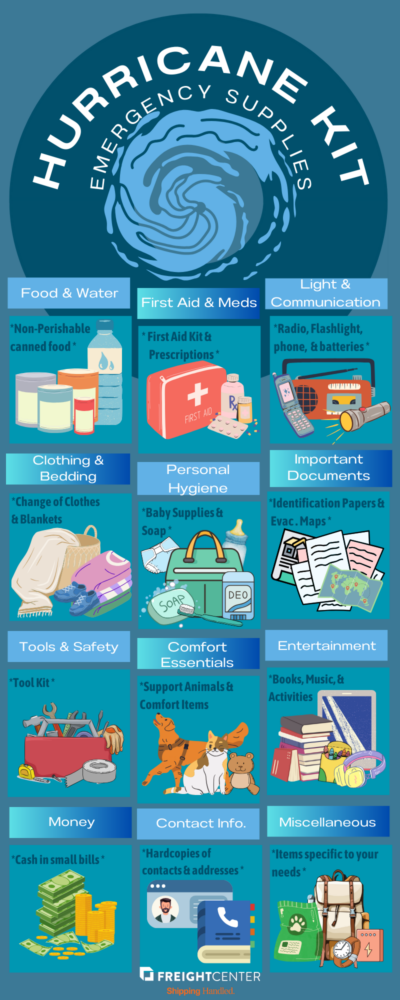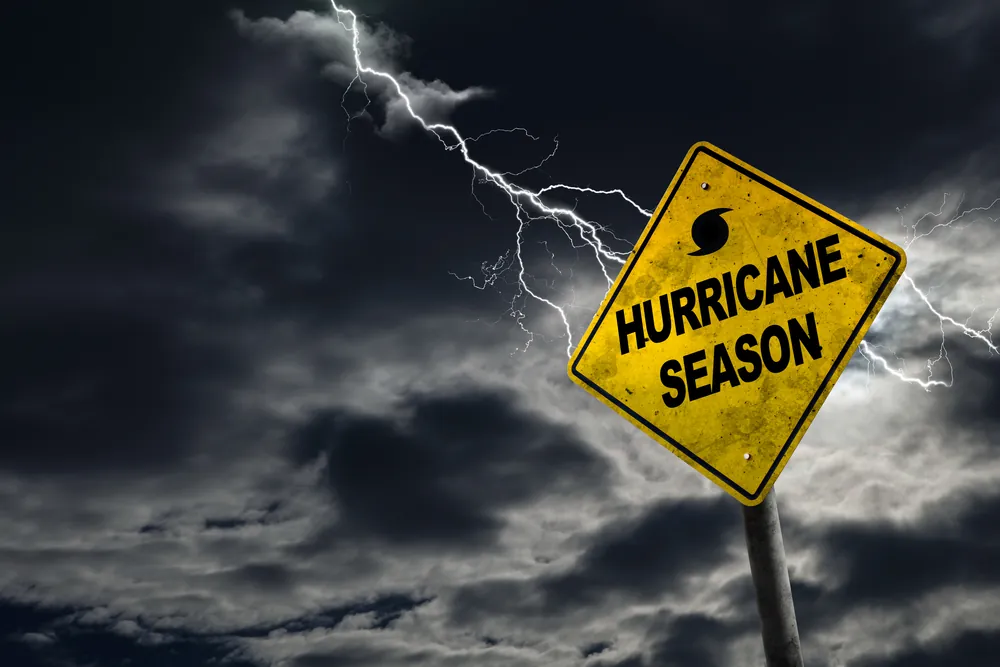In the midst of hurricane season, the need for Hurricane prep and vigilence is paramount. The skies churn, and the winds howl, serving as a stark reminder of the potential dangers that lie ahead. In this article, we will explore ten vital strategies to ensure your safety during hurricane season. These practical insights, ranging from assembling emergency kits to understanding evacuation routes, are your crucial tools for navigating the challenges of hurricane season with confidence and resilience. Whether you’re a seasoned hurricane survivor or facing these challenges for the first time, this information is your key to preparedness and safety.
Stay Informed:
Hurricane Prep is your first line of defense when it comes to Hurricane Season safety. To effectively prepare for a hurricane, staying informed is your first line of defense. Continuously monitor weather updates from reputable sources like the National Hurricane Center, a trusted authority on hurricane forecasting, or your local meteorological service. Keep an eye on the hurricane’s path, intensity, and potential impacts. Ensure you have multiple ways to access information, including TV, radio, weather apps, and websites. Sign up for emergency alerts and notifications to receive timely updates on evacuations, storm tracks, and other critical information. Being well-informed allows you to make informed decisions about your safety and evacuation plans.
Evacuation Plan:
Understanding your vulnerability and having a well-thought-out evacuation plan is crucial when facing an approaching hurricane. Find out if your residence falls within an evacuation zone by consulting local authorities or using online resources. Knowing your zone will help you determine when and if you should evacuate. Plan your Hurricane Kit in advance, whether it’s a friend or family member’s home outside the affected area, a designated shelter, or a hotel. Ensure your evacuation route is clear and familiar to you and your family members. By having a detailed Safety Checklist, you can reduce stress and make a swift exit if necessary.
Emergency Kit:
Building a comprehensive emergency kit is essential for hurricane preparedness. Your kit should contain enough supplies to sustain you and your family for at least 72 hours. Stock it with non-perishable food items, bottled water, a first-aid kit, prescription medications, flashlights, extra batteries, a multi-tool, blankets, and personal hygiene items. Consider the specific needs of your family, such as infant supplies, special dietary requirements, and pet necessities. Regularly check and update your emergency kit to ensure that items are within their expiration dates and in good condition.

Secure Your Home:
Protecting your home is paramount during a hurricane. Reinforce vulnerabilities by installing storm shutters or using pre-cut plywood to safeguard windows and doors. Garage doors should be reinforced to prevent them from collapsing under the force of high winds. Regular yard maintenance is essential; trim trees and shrubs to reduce the risk of falling branches and debris that can cause damage or injury during the storm. Additionally, secure or bring indoors any outdoor items that have the potential to become dangerous projectiles. For more information on how to board up windows before a Hurricane, follow this guide.
Document Important Information:
Safeguarding important documents is often overlooked but critical in hurricane preparedness. Make copies of essential documents such as identification (e.g., passports, driver’s licenses), insurance policies, medical records, and important contact numbers. Store these copies in a waterproof, portable container or scan them and save them on a secure digital drive. This ensures you have access to crucial information in case documents are lost, damaged, or inaccessible during the storm.
Communication:
Maintaining communication channels during a hurricane is vital for receiving updates and staying connected with loved ones. Having a battery-powered or hand-crank radio on hand allows you to receive emergency broadcasts when power is disrupted. Ensure your cell phone and other communication devices are fully charged before the storm hits. Consider investing in a portable power bank or solar charger to keep your devices operational during extended power outages. Effective communication can be a lifeline during emergencies.
Fuel and Transportation:
Adequate fuel and transportation readiness are essential elements of hurricane preparedness. Fill up your vehicle’s gas tank well in advance of the hurricane’s arrival, as gas stations may run out of fuel or become inaccessible as the storm approaches. If you have a generator, ensure it’s in good working condition and has a sufficient supply of fuel. Follow safety guidelines for generator use, including proper ventilation to prevent carbon monoxide poisoning.

Secure Your Property:
Securing your property goes beyond fortifying your home. It includes taking steps to minimize potential hazards. Remove or secure any loose objects in your yard, such as patio furniture, potted plants, and garden decorations, to prevent them from becoming dangerous projectiles in high winds. Additionally, elevate valuable items, important documents, and sensitive electronics to protect them from potential flood damage. These precautions can mitigate the risk of property damage during a hurricane.
Emergency Contacts:
Establishing and sharing emergency contacts is an essential aspect of hurricane preparedness. Communicate your evacuation plan and intended destination to a trusted friend or family member who resides outside the affected area. Provide them with your contact information and any relevant details regarding your plans. It’s also prudent to establish a communication plan with loved ones so everyone knows how to stay in touch during and after the storm, especially if you become separated. You should also keep a hardcopy record of your area’s emergency response contacts.
Stay Inland and Safe:
When the hurricane arrives, your safety should be the top priority. You should know your evacuation zone no matter where you live and should heed authorities’ orders if your home falls under evacuation. If you’re not in an evacuation zone and it’s safe to do so, consider sheltering in place at home. Create a safe space away from windows and glass to protect against flying debris. Follow local authorities’ instructions and remain informed about the storm’s progress. Be prepared to stay indoors until it is declared safe to venture outside to begin post-hurricane cleanup. Your actions during the storm can significantly impact your safety and the safety of others during Hurricane Season.
